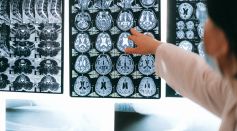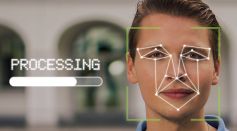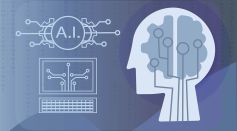Tags: AI

NCyborg Program: Can AI Robots Assist in Stroke Rehabilitation? Neuroscientists Develop Brain-Computer Interface to Find Out
Is China Ready for AI Drone Wars? Unmanned Rockets Can Track Submarines Without Human Input

Neuralink: Can Elon Musk's Brain Chip Implant Create Superhumans?
Photos of Pots and Toasters Help Train New Machine to Track COVID-19

AI Systems Could Soon Predict the Failure of Electronic Devices; How Is It Possible?

Google Artificial Intelligence Can Soon Design Microchips With Greater Speed and Efficiency

AI and Misinformation: How Artificial Intelligence Works on Both Sides

Google's New AI Tool Can Help Diagnose Skin Ailments: How Accurate Is It?

Google's LaMDA AI Can Carry on Natural Conversations, But What's the Point of Talking to a Machine?

Having Weird Dreams? AI-Inspired Hypothesis Explains Why

$3,840 Smart Shoe Helps Blind, Visually Impaired People With Its Ultrasonic Sensors That Avoid Obstacles
Colorectal Cancer Treatment Possible Through Artificial Intelligence Test
AI-Powered Albert Einstein Answers Questions From Fans

Photo Colorizing Tool Uses AI to Create Lifelike Images of Historical Figures

AI Tool Uses Satellite Imagery to Find Pollution Hotspots
![AI Systems Prefer Human Voices Rather Than Binary Codes [STUDY]](https://d.sciencetimes.com/en/full/32936/ai-systems-prefer-human-voices-rather-binary-codes-study.jpg?w=237&h=131&f=30a01e960689724bb750cee1ce7de538)
AI Systems Prefer Human Voices Rather Than Binary Codes [STUDY]

Emojify Shows How AI Emotion Recognition Technology Works and its Implications to Society

MolMapNet: New AI Tool Uses Deep Learning to Predict Pharmaceutical Properties

AI Backpack Helps The Blind Navigate Even Without Canes, Guide Dogs

Artificial Intelligence Can Map How a Brain's Complex Network Works to Understand Sentences
Most Popular

NASA Artemis II 2026: How to Send Your Name to the Moon on the Next Mission

Starship Spacecraft Explained: SpaceX's Reusable Rocket Built to Take Humans to Mars

The Most Important Insects on Earth—and What Happens When They're Gone

8 Mind-Bending Black Hole Facts That Defy Physics





